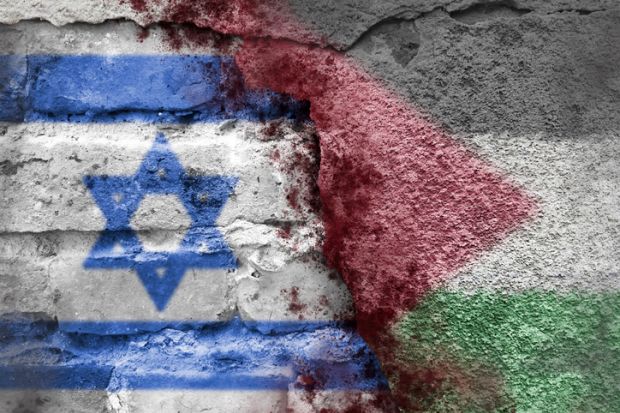Recently, all the Jewish members of my department were trolled by a stupid email whose sole content was a condescending link to Sura 2 of the Koran, which decries unbelievers. It is just one example in a tidal wave of online bullying, shaming and doxxing that we know Jewish students and Muslim students have been facing since 7 October. It was intended to make Jewish faculty afraid as well.
According to CNN, the Anti-Defamation League found that in the eight weeks following the Hamas attack, antisemitic incidents in the US increased by 337 per cent. Of 2,031 incidents in that period, 1,411 were linked to the fighting in Israel and Gaza and 400 took place on college campuses. Likewise, the Council on American-Islamic Relations recorded 2,171 Islamophobic incidents between 7 October and 2 December, 172 per cent above the 2022 two-month average.
The email we received was a soft bid at what the journalist Tanner Greer has called “the extremist’s gambit”: an attempt to manufacture polarisation, hostility and enmity among people who were formerly moderates. The goal is to efface all middle grounds and grey zones.
That is the opposite of what my colleagues and I are trying to do in the department of Jewish, Islamic, and Middle Eastern Studies (JIMES) at Washington University in St Louis. What makes us all but unique (there is only one other such department in the country, which I helped to found at Rhodes College in Memphis) is our active emphasis on embracing diverse perspectives and inculcating mutual understanding. Students interested in Jewish studies are required to learn about the history and culture of Islam and the Middle East, just as students interested in Islamic civilisations or the Middle East must learn about Jews and Judaism. Whether from the perspective of language, literature, religion, history or politics, the goal is to deepen students’ appreciation of the complexity and heterogeneity of these societies and cultures.
It has not been easy for those of us in this mixed department since 7 October. We have disagreed about statements we might sign and public programming we might host. We all feel fragile in different ways. Some have cried at department meetings. This is unusual behaviour in the academy, where we pride ourselves on our objectivity and rationality. Emotions are usually held at bay. Nonetheless, we have tried, sometimes feebly, to hold one another together.
Our students, likewise, have felt assaulted. Often this is primed by the churn of polarised accounts spat their way by social media algorithms, or by the activists on campus who offer up one-eyed views on Hamas, Israel, Palestinians or Jews and urge their adherents to only mourn for those brutalised by one side or the other.
Our views are shaped by the modes of information we access. The slow and intimate learning that occurs in our small classes – and, more than ever, in hallway conversations between them – cannot be easily scaled for mass learning. But my hope is that our students become catalysts to slow down the wider discussion and help promote the kind of evidence-based, integrative and encompassing conversations they have become used to, attentive to multiple viewpoints.
My fear is that extremists’ gambits are teaching students to avoid seeking out what we offer in JIMES. But this moment cries out for departments like ours. It calls for us to avoid binary thinking and simple formulas and to listen to and learn from narratives that radically challenge our own. It calls for us to stop wrapping ourselves in flags and formulas, acting as if we are warriors in this war, and, instead, treat each other as broken human vessels trying to make ourselves whole, often not in situations of our own choosing.
At JIMES, we seek to understand how we got here and to imagine possibilities for how we can get to a place where we can each recognise the divine spark in the face of all others. This mission is foundational for the humanities, and this war is a reminder of its centrality to how higher education must serve as a counterweight to much public discourse.
Jonathan Judaken is Gloria M. Goldstein professor of Jewish history and thought at Washington University in St Louis.
Register to continue
Why register?
- Registration is free and only takes a moment
- Once registered, you can read 3 articles a month
- Sign up for our newsletter
Subscribe
Or subscribe for unlimited access to:
- Unlimited access to news, views, insights & reviews
- Digital editions
- Digital access to THE’s university and college rankings analysis
Already registered or a current subscriber? Login








